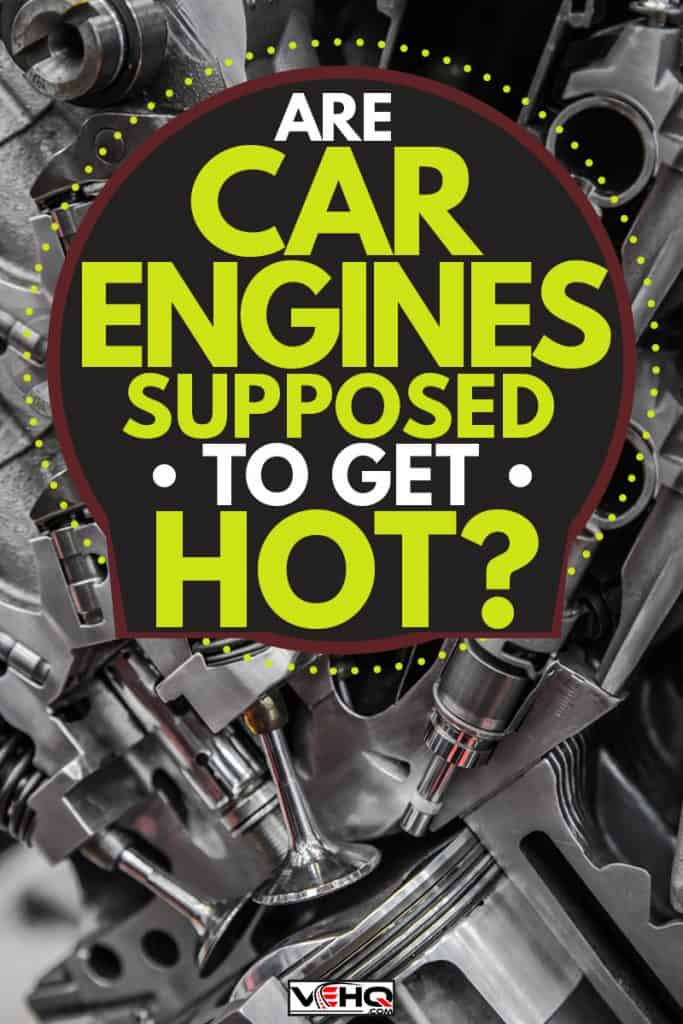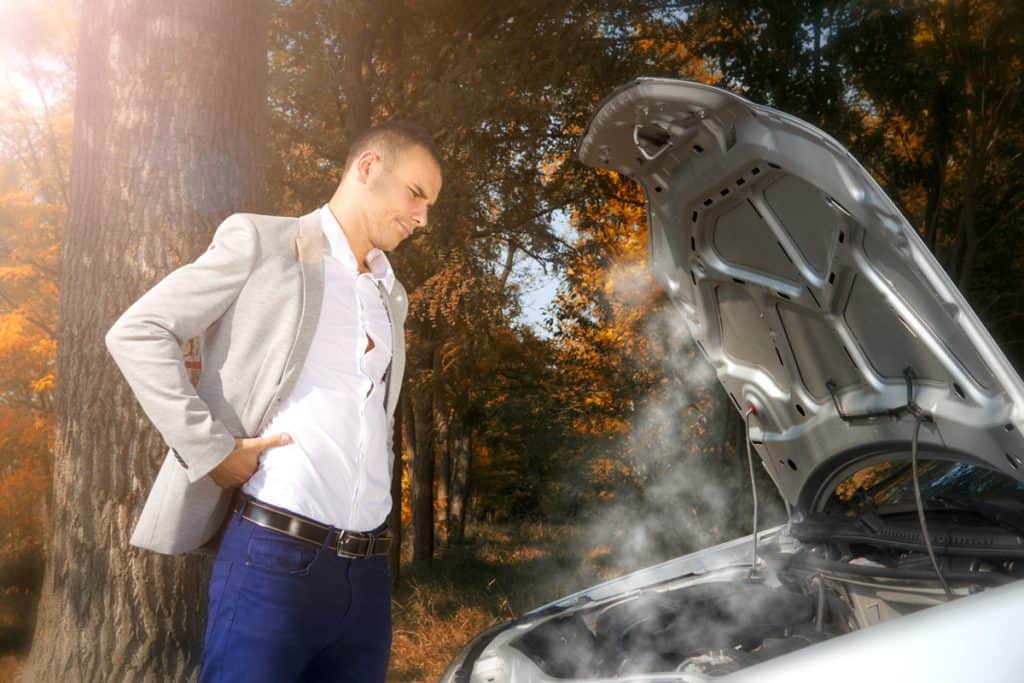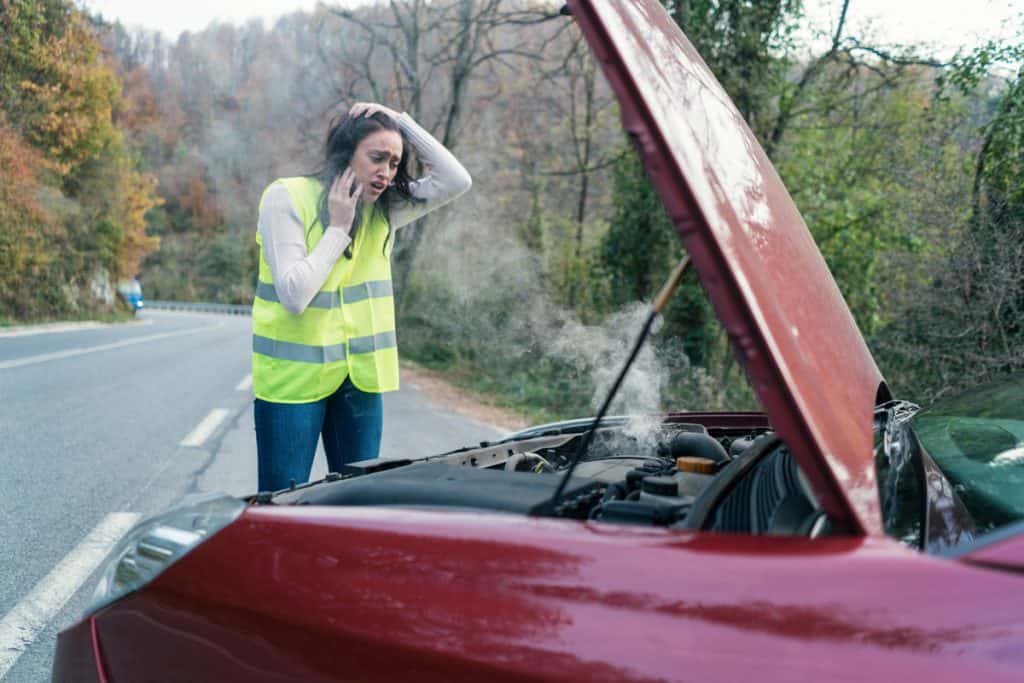Usually, owners pay little attention to a car's engine. Sure, we fire it up to get where we are going, but if your car's engine seems to be running hot, this should be a source of concern, and overlooking it could cost dearly for repair or replacement. How do you know how hot is too extreme for an engine? We've researched usual temperatures for car engines and how to know what signifies a problem if an engine seems too hot.
Car engines are supposed to get hot, but should not exceed the standard operating temperature range between 195 to 220 degrees Fahrenheit. When engines heat up, it could signify underlying issues such as:
- An overworked engine
- A damaged or clogged radiator
- A damaged thermostat or water pump
- Low coolant level
Most people have a hard time determining when an engine becomes hot versus when an engine overheats. If you think you might not notice the difference, we've got you covered. Keep reading because we'll discuss how temperature fluctuations affect engines, the warning signs of overheating, and how to know when it is time to consult your mechanic.

Are Car Engines Supposed To Get Hot?
A healthy engine should not get hot. A hot engine is a lesser concern than an overheating engine because most of the results are reversible. By acting quickly, you can keep your engine temperature within a normal range. So, if you observe a too hot engine, it might be trying to warn you or a bigger problem. A car's engine can get overheated by any of these underlying issues:
1. An Overworked Engine
Driving your ride at ridiculously high speeds during the summer, excessive towing, and overburdening your car with an extra-heavy load all seem harmless- until your engine shows its disapproval by raising its temperature.
A hot engine may not pose much of a threat for the first few days, but it can cause extensive damage to your vehicle if ignored for long. In addition to going easy on your engine, please pay attention to the engine temperature gauge and panel lights that alert you if there is a problem.

2. A Damaged Or Clogged Radiator
How often do you change the fluid in your radiator? If the answer is never or rarely, that's the most likely reason why it's clogged.
A radiator keeps an engine from overheating and keeps it cool. When it's clogged or damaged, it can't serve its purpose effectively. Luckily, it's possible to get it back in shape without going to the pros.
3. A Damaged Thermostat Or Water Pump
The thermostat and water pump have an almost similar function, so if either of the two components suffers damage, the engine is bound to heat up.
The thermostat sits between the engine and the radiator and keeps the engine at its average working temperature. It carries this out by trapping the coolant around the cylinders and staying shut until it reaches the optimal working temperature.
On the other hand, the water pump is the heart of the cooling system and continuously circulates engine coolant throughout the system. The water pump is crafted into a circular shape from a combination of aluminum and steel.
4. Low Coolant Level
The coolant prevents engine damage caused by boiling or freezing and transfers heat. Since heat is better transferred when there's liquid in the cooling system, it's always best to ensure that coolant is available sufficiently.
Is It Normal For A Car Hood To Be Hot?
No, it's not normal for a car hood to be hot. When you've got lights going off on your dash alerting you, or smoke coming out of the hood, those are clear signs that your car is overheating.
Don't panic. You've got it under control. Just pull over somewhere safe, get out of your vehicle, and call a mechanic or other certified car repairperson. Do not, we repeat, DO NOT try handling the issue yourself because apart from getting some nasty severe burns from the scorching steam, you could further damage the motor.

If you choose to open the hood, wait for at least 10 minutes first and, if the coolant level is low and you have it, a quick top-off can soften the heating and protect the motor as you wait for help to arrive. Remember to consult your owner's manual to locate the coolant reservoir tank and learn how to add coolant to your ride if you've never done so before.
How Do I Know If My Engine Is Overheating?
Other than smoke popping from the hood and the hood being unusually hot, other signs can tell you your car is overheating include:
- The temperature gauge reading near maximum or the gauge light flashing on.
- A distinctive burning smell caused by (probable) melting of bits of resin holding the engine together like plastic valves and rubber seals.
- Thumping sounds.
- Less engine power.
- Hearing a ticking noise from the engine.
- Steam billowing out from under the hood.
- Coolant leaking under your car.
During overheating, the pistons powering your vehicle can get bigger and seize in the cylinder bore. If you continue to run the engine when it's in such a dangerous condition, you may end up cracking the cylinder heads and engine block, which will lead to a costly intervention from the mechanic.
What Temperature Will Damage A Car's Engine?
If your ride's got a temperature gauge, whether digital or analog, the gauge's needle should be stationary somewhere around halfway up all through your drive. Idling at a stop, air conditioning, and towing may affect this state, but if your vehicle is running anywhere between 190-220 degrees, the engine will be fine. Anything beyond that temperature range may cause your coolant and radiator fluids to burn, eventually damaging your engine.
Many factory temperature gauges are designed to read in the middle of the indicator over an array of temperatures, limiting their ability to let you know if your ride is running hot but not overheating. For a fast, straightforward way to get an accurate reading, consider using devices to read the specific temperature from your vehicle's coolant temperature sensor.
One such device links to an app on your phone, so you can read various values from all sensors using a BlueTooth OBD2 code reader.
Click here to view this product on Amazon.
Does Coolant Keep Your Engine Cool?
No, the coolant does not cool the engine. It only regulates or reduces the temperature of your engine. Depending on your type of car, you may need a coolant created for high-mileage vehicles, a coolant with specialized additives, or a coolant formulated for particular manufacturers.
Using the wrong coolant in your engine can damage components or cause corrosion to result in long-term effects. Since the coolant-related issues happen inside the motor, you may not notice the damage caused unless you take a look at the motor's internal-heat transfer surfaces and cooling passages.
Whenever you handle coolant, please do it with care, especially when you're around children and pets. Ethylene glycol, which is the main component in most coolant/antifreeze products, is extremely lethal. Antifreeze poisoning may kill you or severely damage your heart, brain, or kidneys.
How Can I Cool Down My Car's Engine?
There are countless ways to cool down your car's engine. First of all, you could leave car windows slightly open for air to escape. If you have a sunroof, crack that open as well. Closed windows trap hot air, and the glass acts as a conductor that helps heat the cramped space.
This next tip may sound odd, but turning on the heat works too. It can pull hot air away from the motor compartment to cool the engine. Pay attention to the floor air vents more than the dashboard air vents. Hot air rises, so switch to the floor vents and put your blower on the maximum setting to push that stuffy air out. Once your car starts cooling, you can open the upper vents once again.
Thirdly, park your ride in the shade. Not only will the engine cool, but shade can extend the life of your car's exterior paint. If you can't find a shady spot, you can always use a sunshade to lower heat inside your vehicle.
Lastly, how long have you used your car battery? If it's older than three years, chances are it's slowly dying down, causing your car to work harder and overheat in the long run. Give the battery an early retirement and buy a new one.
A Hot Engine Isn't The End For Your Car
Many people end up ruling out their rides once the hood gets hot and even buy a new car. A more reasonable and pocket-friendly approach would be to relax and act as fast as you can to keep the engine cool. It's our sincerest hope that your engine remains in mint condition, but if it acts up, we're confident these tips will help you to troubleshoot and resolve the issue.

